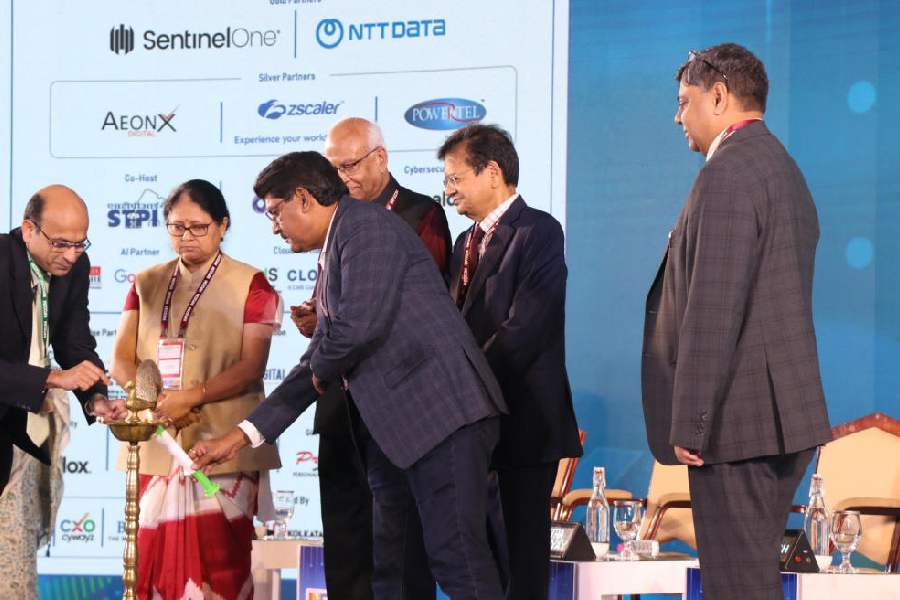As India mulls drawing up rules to curb the menace of deep fake, the tech industry and academia at Infocom 2023, the flagship event of the ABP group, pointed out the need for having regulations to govern artificial intelligence (AI).
Bhaskar Ghosh, chief strategy officer, Accenture, said after the internet and smartphones, generative AI is the third biggest tech disruption globally.
“Today’s disruption with generative AI is much more than what we have seen earlier. I believe that this will create a lot more opportunities in the future and it will touch all our lives and livelihood. Our research says that 97 per cent of the executives of the world feel that this technology will change their industry and their organisation.
“Almost 40 per cent of the work across industries will be impacted. Out of 40 per cent, 20 per cent may be automated over time and 20 per cent would be augmented with technology,” Ghosh said.
“We need to have talent and the right regulatory framework so that we can manage the risk. We must use technology in a responsible way so that at the end of the day it creates value for mankind,” he said.
Anil Valluri, vice-president India and SAARC, of global cybersecurity major Palo Alto said on the sidelines of Infocom that while framing rules, there is a need to identify the loss — both financial as well as reputational — as a result of deepfake attacks and penalties must be notified and enforced to discourage such attacks.
Sanghamitra Bandyopadhyay, director of ISI, said that AI had a golden era in the 1970s but there was a subsequent lull.
“The basic model of the neural network (Perceptron) could not classify simple data sets. So the faith in AI waned. Right now we are in an era where we cannot deny that AI is going to affect all our lives.
“Generative AI has become a matter of great interest as well as a matter of great concern. Worldwide there is a great debate going on on how to regulate generative AI. But the march of excellence will continue,” she said.
While there is a need for the next generation of technology to accomplish critical problems, there is also a flipside that can fuel the debate.
“In today’s world folks who are part of the industry can have endless opportunities on what can be accomplished. I feel privileged and honoured that I am living in a time and in an industry which will define the future.
“But at the same time, nature can humble us again and again and one of the most recent examples is the rescue of 41 people where in the 17-day ordeal the best technology and best experts were put together. But finally, it was the rat miners with the shovel who got the breakthrough,” said Puneet Gupta, VP and MD, Netapp, India and SAARC.
“Infocom has woven an intricate tapestry of content which will excite and enthral over a period of 3 days. What the content will do is provoke a century-old debate amongst the proponents of technological determinism and proponents of social constructivism.
“What Infocom hopefully becomes over the next three days is a fierce battleground of people who believe that it is technology which shapes the society and those who believe that it is society that shapes the technology,” said Dhruba Mukherjee, CEO of ABP Pvt Ltd.










